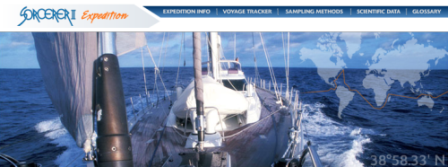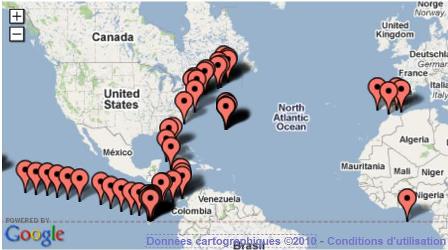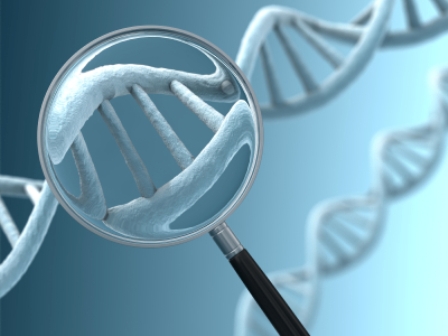Tutorials genomic annotation
|
"All the secrets of the ocean are observed in a drop of water" Gibran Khalil Gibran
State of progress :
100 Kilobases of genomic DNA annotated(4876 sequence, annotated by 2253 annotators )
|
Bioinformatics is at the crossroads of different scientific disciplines, in particular biology, mathematics, and computer sciences. While this interdisciplinary aspect undoubtedly contributes to the subject's attractiveness for researchers and students, it implies the ability to master heterogeneous skills. For biology students, preconceptions lead some to believe that in silico approaches are for computer-savvy specialists only. Teaching bioinformatics not only implies helping students to overcome perceived obstacles, such as mastering biostatistics or computational tools. It also requires momentous efforts to effectively drive home the message that applying bioinformatics tools and interpreting their results is an eminently biological endeavor.
With bioinformatics progressively entering core life sciences curricula, these challenges are being faced by an increasing number of universities. Luckily, since most bioinformatics resources are accessible online, almost every type of bioinformatics teaching can be done from a computer room equipped with broadband internet. Early on in their undergraduate studies, students can tackle bioinformatics questions that are at the forefront of current research, and even investigate problems that have not been addressed to date. Another advantage of in silico teaching is that processes are relatively fast and can be repeated over and over again at little cost, which encourages the learning process through trial and error iterations. However, easy data generation has its pitfalls: raw data flooding and, more perniciously, overconfidence in predictions. The current feeling that turning data into knowledge is the major bottleneck in science in general, and particularly in postgenomic bioinformatics, is of immediate and extreme pedagogical importance.
E-gene
[*]
is a web environment that highlights the different stages of the sequence annotation, calling participants to fill specific tables containing results from different bioinformatics analysis: looking for counterparts (and thus having similar sequences known in other organisms) in sequence databases, looking for signatures in the typical sequence of DNA that could underline the presence of a coding gene, phylogenetic reconstruction, searching potential functions, etc.
The teaching approach we present is the result of several years of experience in teaching bioinformatics at undergraduate level, during which we identified the following points as key ingredients for a successful teaching approach:
- Learning by doing: at undergraduate level, bioinformatics is best introduced by first-hand experience; theoretical considerations are easier to grasp once students are truly familiar with the tools.
- Learning through repetition: mastering bioinformatics tools requires using and reusing them in a wide range of situations. Confronted with twilight zone similarities, or garbage in, garbage out phylogenetic tree reconstructions, students experience both the potential and the real limits of in silico approaches.
- Learning through excitement: a powerful incentive for students is the projection at the very frontiers of knowledge, even if this can lead to uncomfortable situations, where analysis results a priori unknown even to instructors can prove difficult to interpret.
- Learning from constructive criticism: giving students the opportunity to correct themselves results in accelerated progression over time.
 [*] The E-gene is described in No. 4 of January 2011 of Sputnik magazine Cliquez ici pour lire
[*] The E-gene is described in No. 4 of January 2011 of Sputnik magazine Cliquez ici pour lire
|



|
|

